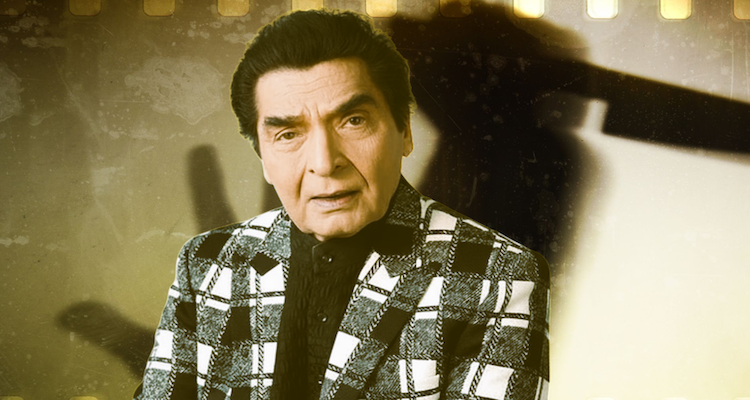Asrani: The Comic Genius Who Defined an Era of Indian Cinema

Veteran actor Asrani, beloved for his unforgettable jailor in Sholay, has passed away at 84. A look back at his remarkable journey and legacy in Indian cinema.
A Legend Bids Adieu
Veteran actor and comedian Govardhan Asrani, fondly known to millions simply as Asrani, passed away in Mumbai on Monday after a prolonged illness. He was 84. The iconic performer, whose eccentric jailor from Sholay remains etched in Indian pop culture, left behind an irreplaceable void in Hindi cinema.
His manager, Babu Bhai Thiba, confirmed the heartbreaking news, revealing that Asrani breathed his last at 3 p.m. at Arogya Nidhi Hospital in Juhu. Later that evening, his family shared an emotional note on his official Instagram page, expressing, “Our beloved Asrani ji, who filled every home with laughter, is no longer with us. His contribution to cinema and the joy he brought will live forever. Om Shanti.”
From Jaipur Roots to the Silver Screen
Born on January 1, 1941, in Jaipur, Rajasthan, Asrani’s journey to stardom was anything but ordinary. After completing his education, he began his professional career at All India Radio as a voice artist. However, destiny had different plans. Trained under acting coach Sahitya Kalabhai Thakkar, Asrani moved to Mumbai in 1962 with dreams of making it big in films.
A fateful meeting with filmmaker Hrishikesh Mukherjee opened the doors to the Film and Television Institute of India (FTII), where Asrani honed his craft, graduating in 1966. But his early years in the film industry were marked by struggle bit roles in films like Hum Kahan Ja Rahe Hain, Hare Kanch Ki Chooriyan, and Satyakam offered little stability. To sustain himself, he began teaching at FTII, not realizing it would become the turning point of his career.
A Chance That Changed Everything
While working at FTII, Asrani was approached again by Hrishikesh Mukherjee this time on the recommendation of poet-filmmaker Gulzar. Mukherjee was searching for new faces for his film Guddi (1971), which eventually starred Jaya Bhaduri (Bachchan). Asrani introduced Jaya to Mukherjee and, during the audition process, ended up being cast himself as an aspiring actor.
Guddi became a box-office hit and a launching pad for both teacher and student. The film’s success marked Asrani’s arrival in Bollywood, setting the tone for an illustrious career spanning over five decades.
A Career Brimming with Classics
In the years that followed, Asrani became one of the most versatile faces of Indian cinema. He brought warmth, humor, and humanity to his characters, often bridging the gap between comedy and emotion with effortless grace.
His filmography reads like a greatest-hits collection of 1970s and ’80s cinema Bawarchi, Namak Haraam, Chupke Chupke, Abhimaan, Parichay, Pati Patni Aur Woh, and Chhoti Si Baat among others. In Gujarati cinema, he left an equal mark with films like Amdavad No Rickshawalo and Pankhi No Mal.
However, his most celebrated role remains that of the eccentric jailor in Ramesh Sippy’s cult classic Sholay (1975) a performance that transcended generations. His exaggerated salute, comic timing, and unforgettable dialogue delivery made the character one of the most quoted in Indian cinematic history.
Remembering His Own Legacy
In an interview with the BBC earlier this year, Asrani reflected on the lasting magic of Sholay. “Even after fifty years, people remember those lines. I can’t recall a single event where I wasn’t asked to repeat them,” he shared with a smile. “It’s all thanks to Sippy saab’s direction and the brilliance of Salim-Javed’s writing. That role taught me what it means to truly prepare for a character.”
His humility and reverence for his craft defined his off-screen persona. Asrani often credited his success to the filmmakers who believed in him and the audiences who embraced his unique brand of humor.
A Director and Mentor
Beyond acting, Asrani also explored direction, helming six films over his career. His storytelling carried the same comic undertones and warmth that characterized his acting. Even in the later years, he continued to appear in films and television, never losing touch with his audience. His final screen appearance was in the 2003 comedy Non Stop Dhamaal.
Farewell to a Beloved Artist
Asrani is survived by his wife, actress Manju Asrani, with whom he shared a life both personal and professional. His final rites were performed on Monday evening at the Santacruz Crematorium in Mumbai, attended by close friends and colleagues from the film fraternity.
In a poignant coincidence, just hours before his passing, Asrani had taken to social media to wish his fans a Happy Diwali, his final public message a farewell filled with light, much like his career.
An Everlasting Influence
Asrani’s passing marks the end of an era that shaped India’s cinematic identity. His characters reflected the everyday man flawed, funny, and deeply relatable. In a landscape that often favored stars over actors, Asrani built his own space one filled with laughter, sincerity, and timeless charm.
His contribution to cinema remains monumental not just for the laughs he sparked, but for the emotional honesty he brought to every role. For generations of actors and fans, Asrani’s work will remain a masterclass in how to blend humor with heart.
The Curtain Falls, But the Laughter Lives On
Asrani may have taken his final bow, but his spirit will continue to echo through every rerun of Sholay and every nostalgic laugh he inspired. In the grand theater of Indian cinema, his voice remains immortal a gentle reminder that even comedy, when done with truth, can touch eternity.
ALSO READ: Kantara: Chapter 1 Roars Past ₹160 Crore in 3 Days, Becomes 2025’s Top Kannada Blockbuster










